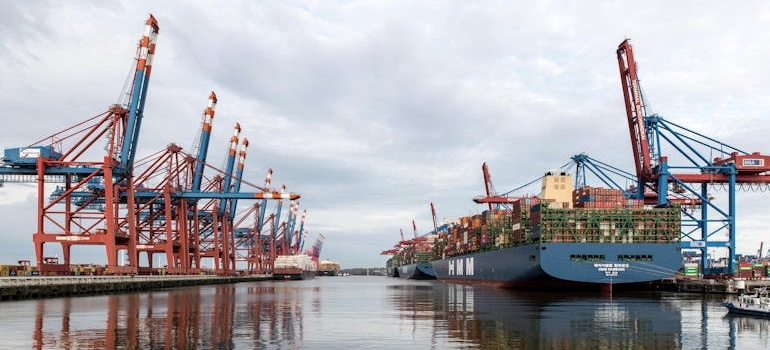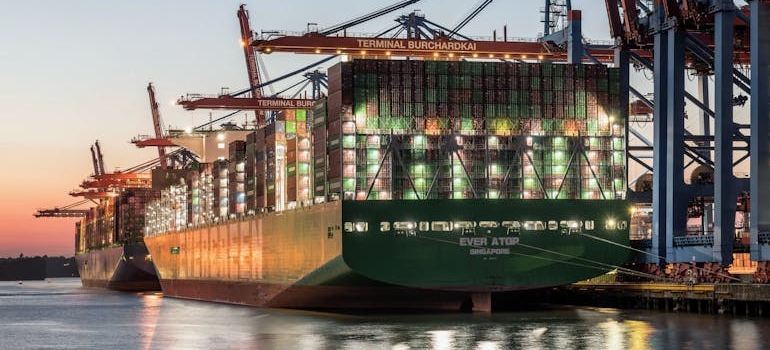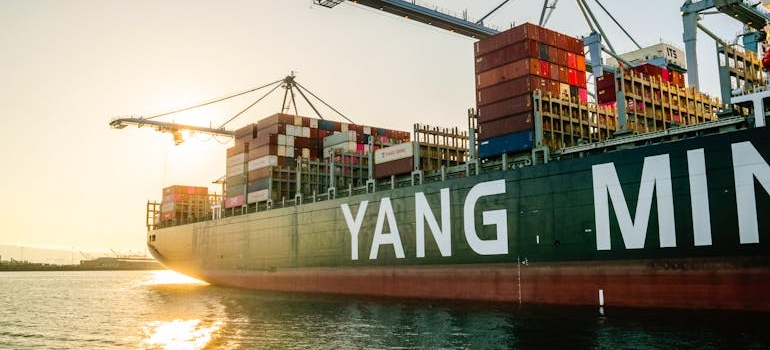The Project Cargo Certifications You Need to Know
Let's TalkProject cargo logistics demands expertise and high precision to ensure compliance, safety, and efficiency. Certifications in this field validate the skills required to manage oversized, hazardous, or sensitive cargo. Below is a guide to key project cargo certifications and memberships that professionals and companies need to excel in project cargo logistics.
Certified International Logistics Specialist (CILS)
The Certified International Logistics Specialist (CILS) credential is an essential qualification for logistics professionals. It provides a comprehensive understanding of global trade laws, customs processes, and international shipping regulations. CILS training focuses on import and export processes, compliance, and shipping documentation. Professionals who achieve this certification gain credibility in logistics, as their expertise in international trade is formally recognized. The CILS certification equips professionals with the tools to manage diverse regulatory environments effectively. CILS-certified experts play a crucial role in the success of multinational trade and logistics operations by streamlining processes and reducing risks. This certification is especially beneficial for those looking to advance their careers in international freight forwarding and supply chain management.

Certified Transportation and Logistics Specialist (CTLS)
Another significant certification for project cargo professionals is the Certified Transportation and Logistics Specialist (CTLS) designation. Offered by the American Society of Transportation and Logistics, the CTLS program focuses on advanced logistics management for specialized or project-based cargo. This certification emphasizes practical skills in handling complex shipments, including oversized cargo, regulatory compliance, and intricate freight management. CTLS-certified professionals are well-prepared to address the challenges of project cargo, from inventory control to customer service. This certification is particularly valuable in environments requiring precise planning and regulatory knowledge. Logistics professionals in Virginia, for instance, often find CTLS training invaluable due to its relevance to the unique demands of the project cargo sector. By equipping candidates with advanced logistics strategies, CTLS ensures that professionals are ready to manage complex supply chains and exceed client expectations.
Project Cargo Network (PCN) Membership
PCN is a global organization that connects project cargo and heavy-lift specialists from over 120 countries. Membership in this network offers exclusive benefits, including access to a verified global network of logistics professionals and advanced communication tools like the PCN Meeting Hub. The organization’s rigorous admission process ensures that only reliable and experienced logistics providers become members, reinforcing trust in the freight forwarding industry. This trust is crucial for clients who prioritize credibility and expertise in managing complex shipments. Companies that join the network gain recognition for their ability to handle challenging logistics projects, making PCN membership an essential mark of quality and professionalism in the project cargo industry.
FIATA Diploma in Freight Forwarding
The FIATA Diploma in Freight Forwarding is an internationally recognized credential offered by the International Federation of Freight Forwarders Associations. This diploma provides logistics professionals with foundational knowledge in freight forwarding and international trade. Covering essential topics like trade laws, multimodal transportation methods, and customs procedures, the FIATA diploma ensures that candidates have the skills needed to operate effectively in global logistics environments. The diploma emphasizes professionalism, helping graduates build strong, trusted client relationships. By achieving this qualification, professionals demonstrate their commitment to adhering to the best freight forwarding and logistics management practices.

Customs-Trade Partnership Against Terrorism (C-TPAT)
C-TPAT certification, developed by U.S. Customs and Border Protection, focuses on enhancing supply chain security. Short for the Customs-Trade Partnership Against Terrorism, this certification ensures logistics providers comply with rigorous security standards to protect against threats like terrorism and smuggling. C-TPAT-certified companies undergo thorough risk assessments and implement strict compliance measures. These efforts enhance client trust by demonstrating a commitment to safety and regulatory adherence. This certification is indispensable for organizations managing project cargo, as it addresses the security concerns that often accompany sensitive or high-value shipments.
Hazardous Materials (HAZMAT) Certification
The Hazardous Materials (HAZMAT) certification is another critical qualification for professionals managing dangerous goods. This certification requires specialized training in safety protocols and regulatory compliance. Professionals with HAZMAT certification are equipped to handle sensitive project cargo responsibly, ensuring the safety of both personnel and cargo. Given the risks of transporting hazardous materials, this certification is essential for maintaining industry standards and preventing accidents during logistics operations.
ISO Certifications
ISO certifications, including ISO 9001:2015 and ISO 14001, play a significant role in project cargo logistics. The ISO 9001:2015 certification focuses on quality management systems, ensuring that companies consistently meet customer requirements and deliver reliable services. It emphasizes risk-based thinking, continuous improvement, and customer satisfaction, enabling companies to enhance operational efficiency and minimize errors. For project cargo logistics, this ensures smooth project execution and dependable service delivery.
ISO 14001 highlights environmental management, showcasing a company’s commitment to sustainable practices. It promotes eco-friendly operations, helping logistics providers align with global environmental standards. In an era where sustainability is a top priority, ISO 14001 certification appeals to clients seeking responsible and environmentally conscious partners.
ISO 9001:2015 and ISO 14001 certifications strengthen a logistics provider’s reputation. They assure clients that the company adheres to international quality and sustainability standards, making these certifications essential for earning trust and standing out in a competitive market.
OSHA Compliance Certification
OSHA Compliance Certification ensures that companies adhere to safety regulations to prevent workplace accidents. This is particularly important in the logistics industry, where workers often handle heavy or hazardous materials. OSHA compliance training covers critical safety protocols, such as loading docks, vehicle operation, and cargo storage. By maintaining high safety standards, companies protect their employees and reduce the risk of accidents, enhancing overall efficiency and reliability in project cargo operations.

TAPA Certification
The Transported Asset Protection Association (TAPA) certification is widely recognized for its focus on supply chain security. TAPA-certified companies implement strict protocols to prevent theft, tampering, and cargo loss. This certification is especially valuable for logistics providers handling high-value or sensitive shipments, as it underscores their commitment to maintaining secure operations. TAPA standards address key areas like secure storage and transport. This certification is vital for companies aiming to build trust with clients who prioritize security.
The Value of the Project Cargo Certifications
The project cargo certifications and memberships are not just credentials but indicators of expertise, professionalism, and reliability. As the logistics industry evolves, these qualifications remain essential for professionals striving to meet the highest standards. By investing in these certifications, logistics providers can enhance their reputation, expand their capabilities, and build lasting trust with clients. For clients, partnering with certified logistics professionals like Interstate International ensures their project cargo is in capable hands, minimizing risks and maximizing efficiency.
If you need assistance with cargo, Interstate International is ready to assist. Call 800.745.6683 today to get the conversation started.
